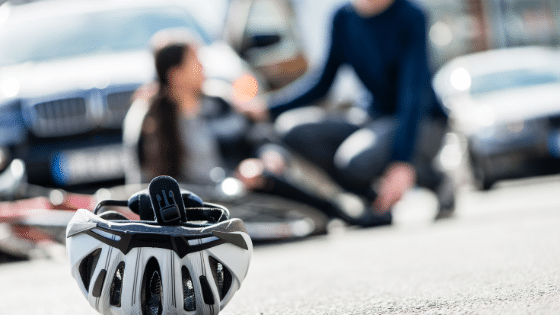Bicycling has quickly become a leading trend in health, fitness and recreation. It’s also become a popular method of transportation for those looking to lead a greener lifestyle. In states like Florida where it’s summer-like weather all year round, it’s no surprise that people have taken to the sport. With that comes the unfortunate risk for accidents with pedestrians and motor vehicles. Florida ranks first in the nation for bicycle fatalities at 5.7 per million and sees an average of 110 cyclist deaths each year. With numbers like these, it is important to know what steps to take and what legal rights you have if you are the victim of a cycling accident in the state of Florida.
At the Scene of the Accident
If you’ve been in an accident, chances are you’re shocked, scared, and potentially injured. With that being said, you need to keep your wits about you and keep these steps in mind:
- Call the police immediately. They’ll arrive at the scene and take an official report of what happened. They can also facilitate your interaction with the other party involved in the accident and help to get the necessary insurance information exchanged between parties.
- Seek medical treatment. Just because you aren’t bleeding doesn’t mean you do not need medical attention. Many people are in shock after being in an accident and don’t yet feel the pain of any injuries they may have sustained.
- Collect as much evidence as possible if you’re physically able to. It’s important to act fast, as the scene of the accident will not remain preserved for long. Take photos of the scene from different angles, document weather conditions, and the state of your bicycle. It’s also important to photograph your injuries before they’ve been treated, and to look out for any eyewitnesses who may be willing and able to give a statement on what happened.
After the Accident
Now that the details of what happened are starting to sink in, there are some things you need to keep in mind, especially if you are thinking of pursuing legal action:
- Do not get your bicycle fixed right away, and do not wash the clothes you were wearing. Keep the clothes in a sealed plastic bag. These can be crucial and compelling pieces of evidence regarding the severity of the accident should your case go to trial.
- If you didn’t at the time of the accident, return to the scene and take photos. Get pictures from multiple angles. Also, be sure to include pictures of any relevant signage in the area that may help prove that you were not at fault. If there was a bicycle lane, be sure to include a photo of that as well.
- Keep copies of all documents and paperwork. This includes the police report, doctor’s notes and medical reports, medical bills, and any documentation of lost wages.
Florida No-Fault Laws
Florida is a No-Fault state, meaning that regardless of who was at fault for the accident, you’ll need to reach out to your own insurance company to file a claim. Because of this, the state of Florida requires all motorists to have Personal Injury Protection coverage (PIP), also known as “No-Fault” coverage. PIP is a type of car insurance that helps pay your medical bills and lost wages in the event of an accident, and Florida requires all motorists to carry $10,000 of coverage. This type of insurance typically pays for 80% of medical bills and/or 60% of lost wages incurred because of the accident, depending on what deductible you selected when you purchased the coverage. You’re probably thinking “wait this is a bicycle accident and my bike doesn’t have insurance”, but if you own a vehicle that is properly insured, you’ll be covered by that policy.
In order for an injured cyclist to file legal action against the at-fault driver, they must have suffered an one of the following:
- Permanent injury within a reasonable degree of medical probability
- Loss of bodily function
- Significant scarring
- Disfigurement or dismemberment, or;
death
If you or a loved one is a cyclist and have been involved in an accident, it’s important to reach out to The Amour Law Group, Orlando Personal Injury Attorneys, if you’re considering legal action to recover damages. We can advise you on your case and what you may be able to recover.


Recent Comments